CATEGORIES
فئات
أحدث القصص

DREAMS AND NIGHTMARES
A fan's notes on Super Bowl week.
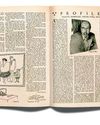
Ian Frazier on George W. S. Trow's "Eclectic, Reminiscent, Amused, Fickle, Perverse"
George William Swift Trow, Jr.,'s G name fit his quickness of wit and spirit, and his grace.

DEATH BECOMES HIM
“Mickey 17.”

L.A. CONFLAGRATIONAL
The classic mystery that prefigured the latest wildfires.

CROWN JEWEL
A golden age for the New Orleans king cake.

AS HARVARD GOES
Free-speech battles and outside pressures threaten American universities. Will the oldest bend or break?

IF YOU CAN'T STAND THE HEAT
Why menopause never gets old.

THE POLITICS OF MORE
Do liberals need to learn how to build?

JOIN MY MATREON!
Family, here's some big news: I have just launched a Matreon account, and I'm inviting you to be a part of this exciting community!

TRAGEDY AT ROCK SPRINGS
In 1885, white rioters killed dozens of Chinese immigrants. The story of the atrocity is still being unearthed.
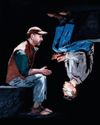
HOME AGAIN
\"Grangeville\" and \"Curse of the Starving Class.\"

There Is New Thinking On Concussions in Sports
Thirty years ago, Dr. John Leddy was treating athletes at the University of Buffalo when he became frustrated with the conventional wisdom around concussions.

Years of War Leave Ukrainians Weary, But Determined to End It on Just Terms
Memes of Zelensky punching Trump swept Ukrainian social media.

Ex-Gov. Cuomo Enters NYC Race For Mayor
Former Gov. Andrew Cuomo, who resigned in disgrace three years ago, announced his return to politics Saturday with a bid to be New York City's next mayor, joining a crowded primary field that includes embattled incumbent Eric Adams.

There's No Need to Fret Over EU Travel Authorization Yet
The United Kingdom has already unveiled its travel authorization system.

Nvidia AI Chips Reach China Despite U.S. Ban
Chinese buyers are circumventing U.S. export controls to order Nvidia's latest artificial intelligence chips, illustrating the challenges the Trump administration will face in choking off cutting-edge American technology.
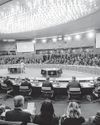
How to Protect NATO From Trump
Responsible advisers and GOP lawmakers should redirect his focus to other targets, especially the EU.

U.S. Lags Far Behind Rivals Like China In Building Oceangoing Containerships
Asian shipyards churn out hundreds of big boxships and oil tankers a year. The U.S. is lucky if it can finish more than one each year.

Mondelez Plans Fluorescent-Glow Sour Patch Kids
The idea came from observing how Gen Z loves glow-in-the-dark elements.

Keep Your Digital Life Safe From Hackers
If you read our profile of former Disney employee Matthew Van Andel, whose life was destroyed following a single download, you might be wondering: How can I prevent this from happening to me?

European Allies Seek to Forge Their Own Ukraine Peace Plan
U.K,, France look to repair diplomatic damage after Trump outburst at Zelensky

Disabilities Spark A Conflict
Does the growing number of workers who identify as disabled help or harm accessibility?

Budget Fight Tees Up Power Struggle
Democrats say Congress has ceded too much power on spending and tariffs
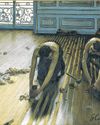
Masculine Works by a French Master
An expansive show at the Getty shows how the Impressionist Gustave Caillebotte recorded his male subjects
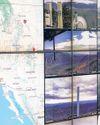
AI Bots Serve as Wildfire Lookouts
Camera network has detected more than 1,200 blazes, often beating 911 callers

Vance Defends Trump's Ukraine Strategy
After Zelensky spat, Democrats and some Republicans express frustration

Oscars Show Love for 'Anora' and L.A.
Indie drama wins five awards, including best picture and actress, on a night that celebrates the fire-ravaged city

Power Stocks' AI Fever Shifts to Gas
Nuclear companies have been the main beneficiaries of a rally, but regulatory uncertainty could widen its scope

Chinese Chain Is Bigger Than McDonald's
It sells ice cream and sugary drinks for under $1. Its mascot looks like the love child of Frosty the Snowman and the Michelin Man. And its stores relentlessly blare a jingle set to the tune of \"Oh! Susanna.\"

The Sixers' Process Takes a Big Hit
Joel Embiid will miss the rest of the season with an injury and the Philadelphia 76ers' future looks as bleak as the past
